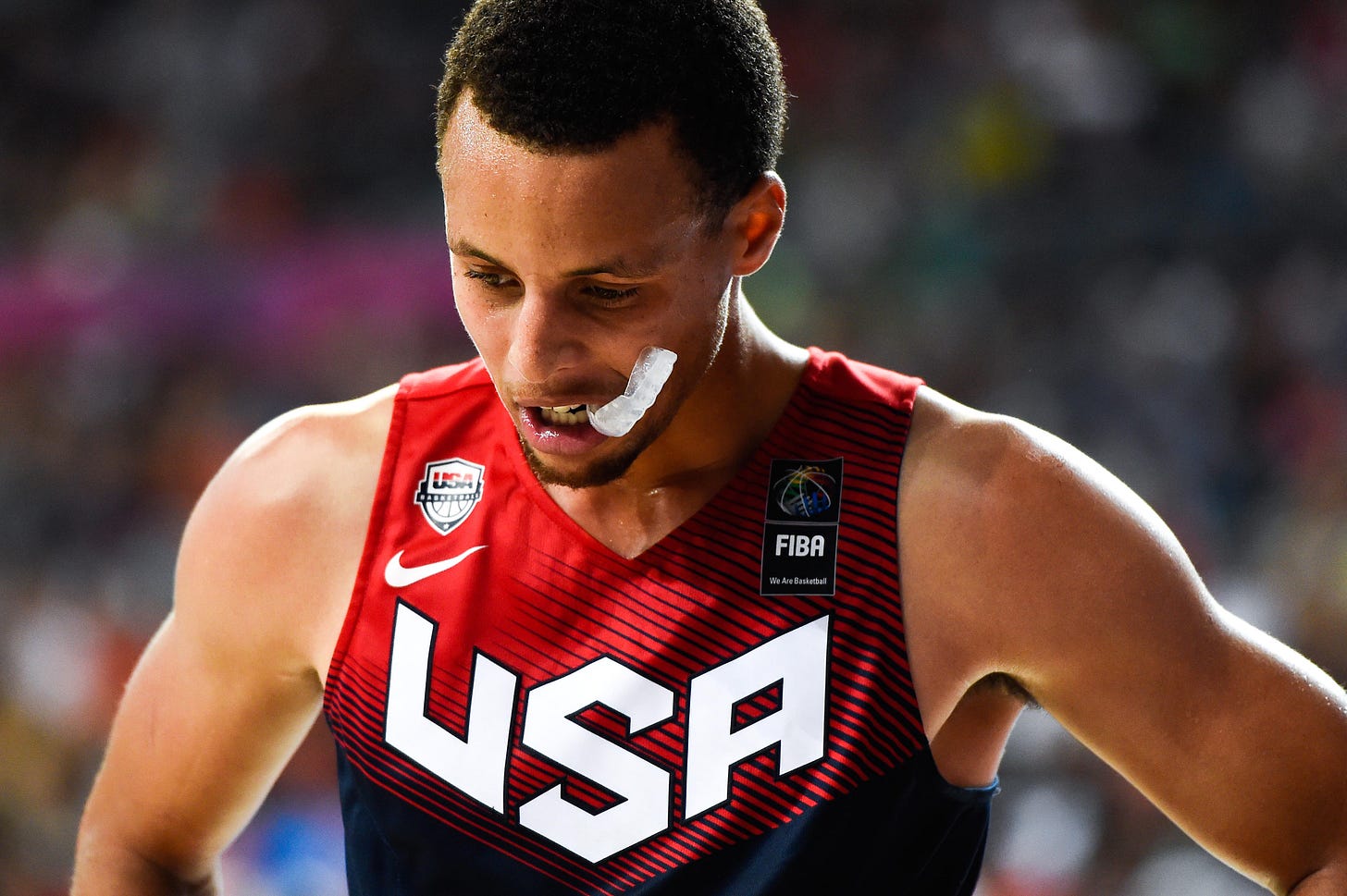Olympic door still open for Curry
There are too many unknowns to make firm predictions about the cornerstones of USA Basketball’s senior men’s national team at the Paris Olympics in 2024.
For the first time since 2005, Jerry Colangelo won't have a central role in picking the next group of players. Gregg Popovich, who finally savored a gold-medal triumph at age 72 after a lifetime of national-team torment, almost certainly won't be the coach in Paris. You likewise wouldn't outright guarantee a fifth successive gold medal for the Americans after the struggles of the past month — as well as the knowledge that France, which appears to have supplanted Spain as Europe's foremost threat to American basketball supremacy, will be playing at home.
My lone promise this far out: Stephen Curry, at 36, will be on the team if he wants to be.
A fun run on the Olympic stage is really the only thing missing from Curry's résumé unless you want to get into another round of debating his need for at least one NBA Finals MVP trophy — which I would dispute. He made the personal decision after the Golden State Warriors' disappointing loss in the deciding Western Conference play-in game to the Memphis Grizzlies to prioritize offseason rest and family time over a trip to Japan to fill that void, but it's faulty thinking to surmise that Curry bypassed his last shot at Olympic glory by doing so.
Given the shooting he would be able to add to the American roster at any age, Curry's appeal to Popovich's eventual coaching successor and Grant Hill, who is replacing Colangelo as USAB's executive director, should be clear. Given the huge roles Curry played on FIBA World Cup-winning teams in 2010 and 2014 in tournaments in which USAB had to play without several top stars, he has banked unquestioned equity with the program. Curry knew he could bypass Tokyo for the good of his Warriors career and his family and come back to the international game later if he chooses.
As for the state of where Curry's game is likely to be in three years, his brilliance last season without the assistance of the injured Klay Thompson should assuage concerns. In February, I wrote this New York Times piece on Curry and his insistence that he's still getting better — even as he acknowledged that “I know that’s kind of crazy to say.” Within the Warriors’ organization, team officials concur with Curry's notion that he still has room to expand his overall effectiveness because, in his own words, Curry has "always been a late bloomer."
As one well-placed observer passed along recently, another way to put it is that Curry is 33 going on 29 in the Warriors’ eyes, thanks also to the copious prep work he puts in and how he looks after himself. You’ll notice that Golden State didn’t hesitate last week when it was time to make him the first player in league history to land a second $200 million contract.


"He's the best shooter who ever lived," Warriors coach Steve Kerr said of Curry when I reached him Saturday, hours after the Americans had turned back France in the gold-medal game, 87-82, to send a relieved Popovich off in red, white and blue glory at last and halt a two-game losing streak to Evan Fournier, Rudy Gobert and Co.
"Steph can absolutely play on the Olympic team three years from now," Kerr said.
Indeed. It’ll be his call.
Imagine how much those odds rise, furthermore, if Kerr gets the job to succeed Popovich. It’s a thankless job in so many ways, promising infinitesimal praise and end-of-the-world scorn greeting every loss, but Kerr has to be one of the top candidates, along with Miami's Erik Spoelstra, after assisting Popovich at both the 2019 FIBA World Cup in China and then throughout the Tokyo roller-coaster.


